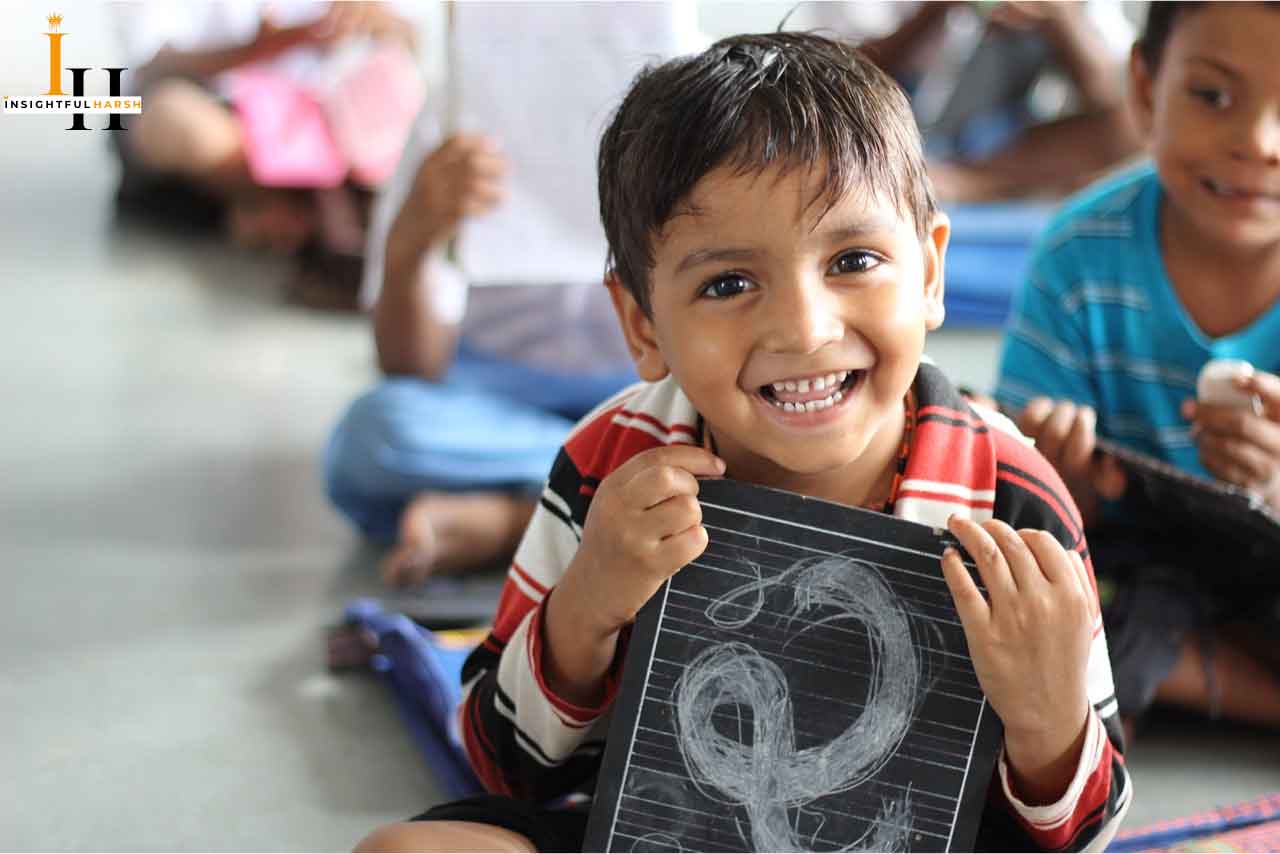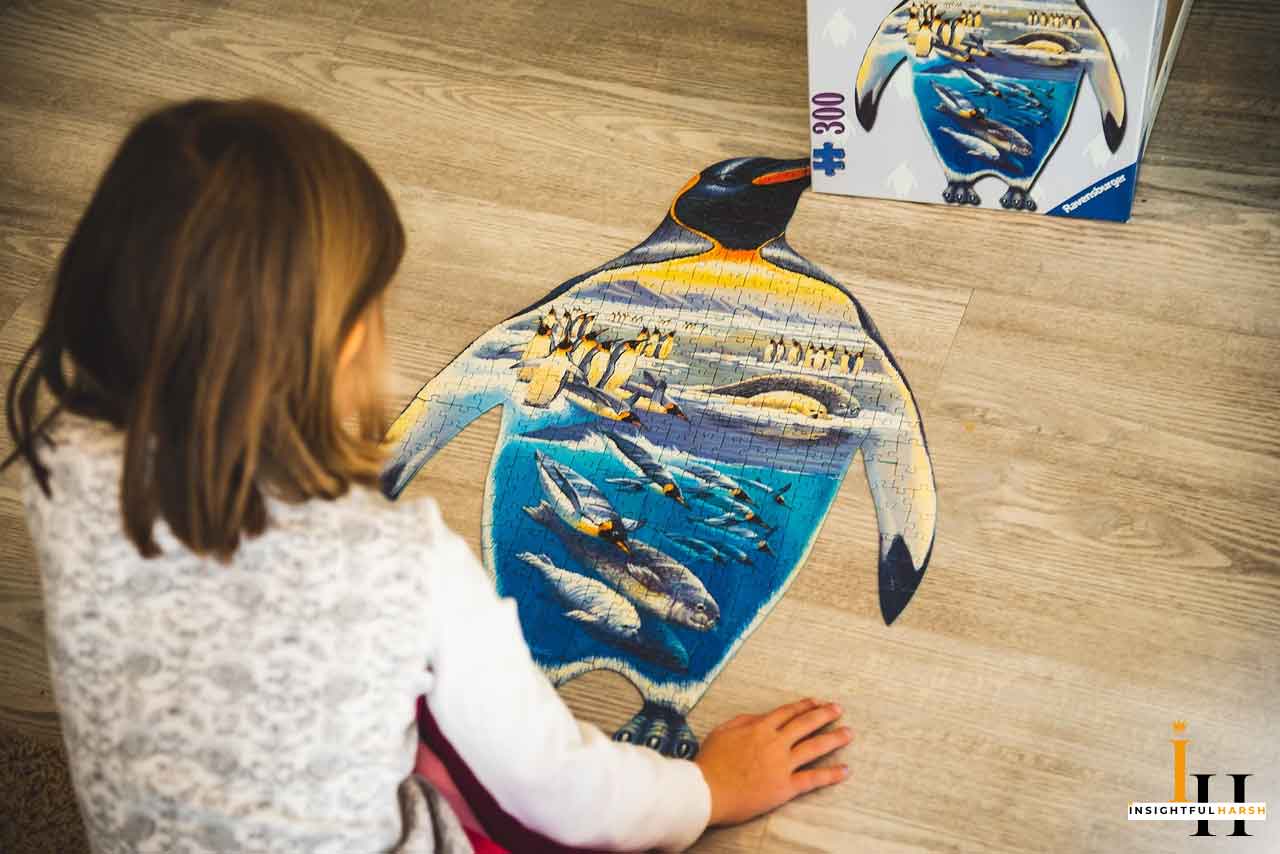Why is social-emotional learning being discussed these days, and what does it entail? For the development of cognition, education is crucial. Extending beyond the curriculum to support a child's whole development is imperative. The dynamics of the classroom are shifting, and more is needed. Now is the ideal moment to consider what social-emotional learning is. The idea of social-emotional learning, or SEL, has been introduced previously. It has been present for about two decades.
Social-emotional learning is being incorporated into the curricula of many educational institutions. Emotional intelligence is developed through social-emotional learning. It's a collection of abilities that helps kids become more emotionally conscious. It is advantageous to a child's entire development. You will learn everything there is to know about social-emotional learning from this article.
 |
| Social-Emotional Learning |
Five Essentials for Developmental Understanding of Social Emotional Learning.
Well, social-emotional learning is a skill that teaches kids and even adults how to react in different circumstances. Teenagers who receive social-emotional learning support in managing their emotions. It aids in recognizing novel feelings like rage, envy, etc. It's simple to cope with your feelings and keep up positive relationships once you learn to identify them. Through understanding social-emotional development, they acquire the ability to respond with passion to different individuals and circumstances in their environment.
Who Taught Emotional and Social Skills?
The idea presented by the Center for Academic Social and Emotional Learning, or CASEL.For over twenty years, CASEL 2 has led the way in this industry. By combining social-emotional learning skill sets at home, at school, and in society at large, this idea benefits teenagers. To integrate social-emotional learning into the curriculum for students in preschool through high school, CASEL was established in 1994. According to CASEL, teenagers who possess these five essential skills are better able to recognize their surroundings and emotions.
1. Awareness of Oneself.
This is the first step in getting to know oneself. It assists in recognizing one's strengths and weaknesses. Being self-aware allows you to recognize how your emotions influence your actions in different circumstances. It facilitates the development of a good self-image. It aids in highlighting advantageous facets of one's own culture. One strategy for managing stress is self-awareness. It supports preserving mental wellness.
 |
| Self-Awareness |
2. Self Management.
monitoring and managing one's feelings and actions. The ability to control one's behaviour is aided by self-management. It results in more interpersonally sensitive behaviour. Self-management is a tool used to educate self-control and how to apply different anger management approaches to handle emotions like anxiousness. Attitude control and emotional regulation aid in accomplishing the set objectives. It facilitates the control of emotions and behaviour necessary for the development and goal fulfilment.
 |
| Increase Self-Management |
3. Social Awareness.
Having social awareness is being conscious of those around you. It emphasizes being sensitive to the feelings of others, appreciating differences, and keeping an eye on group dynamics. To be socially conscious is to have empathy for other people. It encourages compassion for other people and their circumstances. Building more wholesome interactions around us is facilitated by social awareness.
A youngster can form and sustain healthy friendships after he has a greater awareness of the emotional states of others around him.
 |
| Kids learning Social Awareness |
4. Relationship Skills.
One item that helps keep partnerships healthy is relationship skills. The classroom serves as the initial setting for the formation of groups and connections. Learning about relationships is an excellent method to understand group dynamics. It requires us to respect the viewpoints of those around us. Students benefit from relationship skills. It instils empathy in relationships to strengthen them over time.
 |
| Learning About Relationship Skills |
5. Making Sensible Decisions.
It introduces kids to a variety of healthy decisions for their social and personal lives. How do different decisions have different outcomes? It instils moral behaviour, a sense of community, and proper social language. Pupils gain good behaviour skills, and self-controlled reactions help them make better decisions. It has been seen that these kids grow up to make appropriate decisions as a habit and do well in life.
 |
| Kids learning About Topics |
What Advantages Do Social Emotional Learning Offer?
Adolescents benefit from social-emotional learning for their general development. It raises children's emotional intelligence. It supports teenagers throughout their lives by assisting them in making wiser choices.
1. Enhances Report Card Scores.
Indeed, there is proof that it raises grades. It has been shown that grades improve up to the eleventh percentile. It aids in skill identification and the establishment of both short- and long-term objectives. Reaching objectives gets simpler.
 |
| Grades And Scores Improved |
2. Better Ability to Solve Problems.
Problem-solving abilities are ingrained via social-emotional learning. Youngsters learn how to approach everyday issues with empathy. Children with problem-solving abilities can take the initiative to identify the issue and its solution. Teens who have mastered social-emotional skills have had greater success in both their personal and professional spheres.
 |
| Better Ability to Solve Problems. |
3. Increased Self-Composure.
Making teenagers feel good about their culture, and ethics, and accepting components of them is the primary goal of social-emotional learning. It gives kids confidence at a young age so they don't hold back when conversing. Self-assurance is essential for success and a child's general development. Both grades and group interactions are enhanced by self-confidence. Adolescents with confidence rise to difficulties.
 |
| Increase Self-Confidence of Kids |
4. For Participants in Groups.
Children who respect diversity and are sensitive to the feelings of others are better team players. Teenagers pick up on group dynamics and how to value them. It is seen that these kids uphold healthy ties in the workplace, class, and community.
 |
| Kids Participants in Groups. |
5. Enhances Presence.
Youngsters frequently choose not to attend school regularly for a variety of reasons, such as feeling alone or subjected to peer pressure. All of these emotions are subdued at their source because social-emotional learning has produced more stable, kind, and inclusive educational environments where each kid can reach their full potential. Social-emotional learning has been shown to encourage students to attend class. Higher attendance translates into higher comprehension and ultimately higher marks.
 |
| Encourage Students to Attend Class. |
6. Teaches How to Manage.
To respect community standards, children learn how to appropriately manage their own emotions. Students' bright futures will benefit from having the ability to handle everyday issues and crises with empathy and management abilities. As students become more adept at making decisions, they will develop the quality of managing their emotions under pressure.
 |
| Students' Bright Futures |
How Social Emotional Learning Is Introduced in the Classroom.
Make your classroom welcoming. In your classroom, you can establish the following few social-emotional learning norms:
1. Make a happy start to the day. As you greet the pupils, pause to find out how they are feeling that day.
2. Emojis can help you better recognize their feelings. Emoji charts are available for use in classrooms. Any child can indicate how he is feeling at any given time by pointing to a specific emoji.
3. Inquire as to the cause of any child's depression and advise them to consider ways to lift their spirits.
4. Allow the youngster to identify the feeling, its underlying source, and its resolution. Self-awareness is this.
5. Give the child time to understand how this feeling is impacting him once they realize what's wrong.
6. Use brief yet meaningful stories every day to hone life skills. Put a quote about life skills at the top of the chalkboard.
7. Through little actions, impart empathy. Ask pupils if they exercised any skills today when the day is coming to an end. Find out from the students how they handled a specific circumstance.
8. Ask people to console a child who is feeling down, and show empathy yourself. You can perform more group dynamics exercises every day.
9. Group activities are used to complete problem-solving tasks. With kids, speak more sympathetically.
10. Recognize and value the child's modest social-emotional progress.
 |
| Child's Modest Social-Emotional Progress. |
Conclusion.
Similar to any other subject, social-emotional development requires regular practice. There is more to social-emotional learning than merely cognitive growth. It aids in a child's general growth for the rest of their life. It is crucial to be aware of social-emotional learning because it is a topic that is frequently questioned.








0 Comments